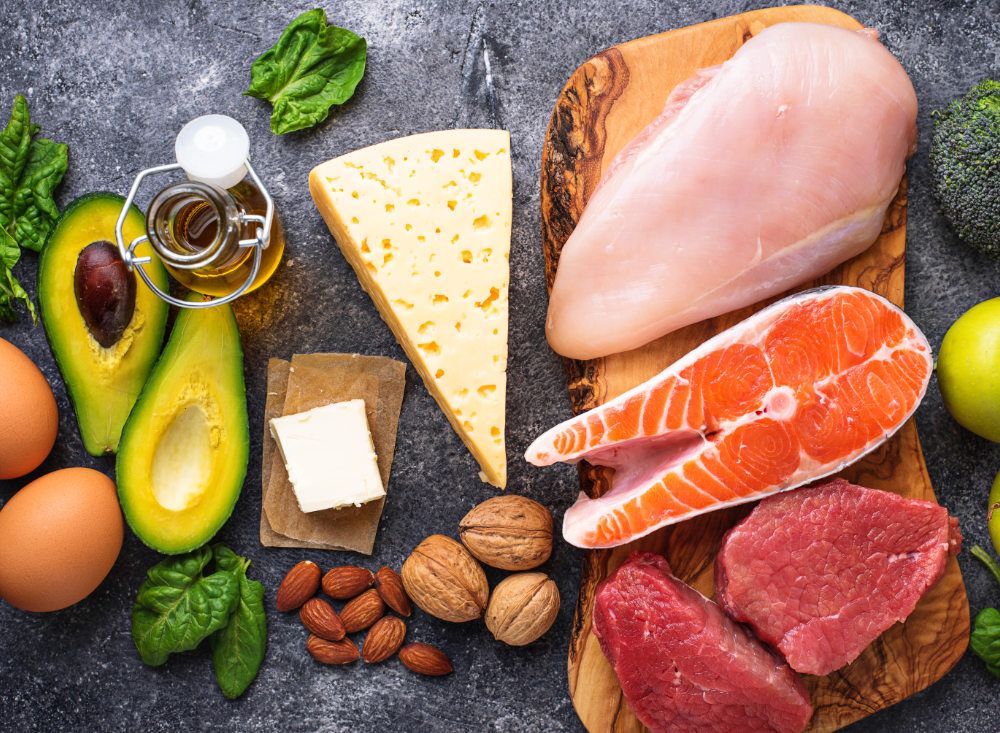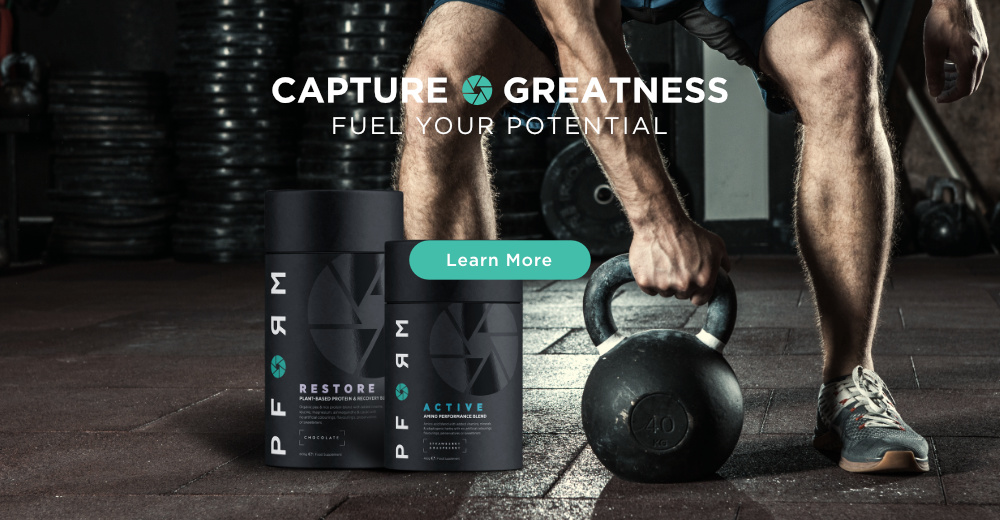
Introduction to the ketogenic diet
This article provides a brief introduction to the ketogenic diet, focusing on its use in a non-therapeutic setting.
In other words, it is aimed at people who are interested in the ketogenic diet for weight loss, body composition, or general health benefits, as opposed to treating a specific disease.
Why do the ketogenic diet?
There are a host of associated health benefits with the ketogenic diet: weight loss, specifically fat loss, metabolic flexibility, improved insulin sensitivity, improved inflammatory balance and antioxidant defences and improved brain health. Check out Pros of the ketogenic diet to gain a better understanding of these.
Background of a ketogenic diet
The ketogenic diet is a high fat, low carb, low to moderate protein diet, which initially came about to manage seizures and epilepsy (1). A standard or classical ketogenic diet, is now an established treatment for epilepsy and there is a growing amount of research indicating its potential use in the treatment of other diseases, such as neurodegenerative disease (2).
The standard or classical ketogenic diet is used for therapeutic purposes and has strict macronutrient ratios of 4:1, so four parts fat (80%) and one part carbohydrate and protein (20%). A modified ketogenic diet, more commonly used for people who are not using it for therapeutic reasons, as referred to in this article, has a more flexible range of macronutrient ratios: fat 65-80%, carbs 5-10%, protein 15-30%, but in general carbs are reduced to approximately < 50 grams.
The purpose of a ketogenic diet is to get you into a state of nutritional ketosis.
What is nutritional ketosis?
Nutritional ketosis means that the concentration of ketones in your blood are 0.5-5 mM. Depending on you as an individual, the macronutrient composition of your diet and exercise levels, you may be in nutritional ketosis without realising it, however usually, with a standard type of diet (with a proportion of carbohydrate) blood ketone levels will be less than 0.5 mM.
What are ketone bodies?
Ketones (or ketone bodies) are an alternative fuel source to carbohydrate and fat. Your liver generates ketone bodes when you have particularly low levels of carbohydrate available (either due to fasting or eating very low carb (approx. < 50g)). Ketones are produced from the breakdown of fat and can easily be transported around your body, to be used readily as an energy source by your body. There are three types of ketone bodies: β-hydroxybutyrate (BHB), acetoacetate (AcAc) and acetone (produced by break down of AcAc).
How do you get into nutritional ketosis?
The production of ketone bodies are stimulated by: fasting (not eating), reducing your carb intake significantly (< 50g per day), exercising - or a combination of the three. Your body needs to be in a state where it favours accessing fat stores, in order to make and utilise ketones as a fuel, instead of carbs (sugar/glucose).
This requires two key criterion to be met: (1) reducing blood sugar (glucose) levels (2) depleting liver carbohydrate (glycogen) stores. Once you have met these criterion, the levels of a hormone called insulin is lowered. A reduction in insulin levels means that your body can now access fat stores and break it down to produce ketone bodies. This results in the levels of ketone bodies in your blood increasing and you reach a state of nutritional ketosis (0.5-5 mM blood ketones).
How do you know if you’re in nutritional ketosis?
You can test your levels of ketones with urine strips, or blood or breath tests. They all have different drawbacks and be aware that as you become more ‘keto-adapted’ (check out Keto adapted versus fat adapted ) your blood ketone levels will lower because you become more efficient at utilising them. You can also gauge it on how you feel – signs include feeling as though you have a steady state of energy and a reduced urge to snack. Again be aware, that it is likely that you won’t be able to rely on the way you ‘feel’ until you have gone through a period of adapting to the ketogenic diet.
Nutritional ketosis is not the same as ketoacidosis!
Nutritional ketosis is understood to be a safe physiological state which is controlled whereas ketoacidosis is potentially fatal. Ketoacidosis occurs when there is uncontrolled ketone production, usually accompanied by high concentrations of blood glucose as well as increased acidity of the blood. This tends to occur in patients with diabetes, especially type 1. It is important to note that this is uncontrolled and is not typically seen in healthy individuals. The production of ketones is usually very tightly controlled in a healthy individual.
How long do you need to be in nutritional ketosis for?
This depends on your objectives and who you are as an individual. An average of 6 weeks (3) is reported to be sufficient to enable you to begin to metabolically adapt to utilising fat and ketones and for your body to build the machinery to do so effectively. However other adaptations which may take place are indicated to take + 6 weeks (4).
It’s important to note that the time that it takes for you to get into nutritional ketosis will vary depending on who you are, your health status, how much exercise you do and what your current diet is. For example, if you already train a lot and do so in a fasted / low carb state, it is likely that you spend time in nutritional ketosis already and are already fat and/or potentially keto adapted.
However, if you have excess fat and/or consume a diet particularly high in carbohydrate, the transition state may take a little longer and not be so fun since your body has to make more of a change!
Can I have any carbs?
Firstly yes! Your diet can include lots of non-starchy carbs like leafy greens, cauliflower, courgettes, cucumber. Also, depending on who you are and your activity level, you may benefit from some carbs. Some people can tolerate much higher levels of dietary carbs than others, for example people who regularly exercise, will still be able to maintain nutritional ketosis (5). Also your carb intake will need to be adapted as you transition towards your health goals and you become healthier.
Some people definitely benefit from cycling in a certain amount of carbs into their diet, and starchy carbs. Possible reasons for this include: psychological reasons / better adherence to the diet, improved hormone levels (cortisol, leptin, insulin), if you are lean and / or do regular exercise. The cyclical ketogenic diet (CKD) refers to perhaps spending 5 or 6 days of the week in ketosis and then 1 or 2 days eating higher carbs and the targeted ketogenic diet (TKD) refers to selectively eating carbohydrate around workouts. However, these are just general examples – these can be adapted to suit you and meet your goals.
Final words
- Check out the Pros of the ketogenic diet and the Cons of the ketogenic diet to understand further about the keto diet.
- Plan: firstly plan for the initial phase and the adaption period to ensure that you get plenty of electrolytes and fluids during this adaption period. You also need to make sure you consume enough fat to begin with – it can be quite a change for some people. Secondly, generally plan – focus on planning simple whole food meals which are quick to prep and delicious to eat. Think salmon, avocados, leafy greens…..
- Understand your objectives: consider what you want to get from the ketogenic diet and why. It will help you to work out whether you want to try the ketogenic diet and give you your reasons for sticking to it!
Related articles
- Pros of the ketogenic diet
- Cons of the ketogenic diet
- Keto adapted versus fat adapted
- The benefits of the ketogenic diet for the athlete
References
- Neal et al. (2008). ‘The ketogenic diet for the treatment of childhood epilepsy: a randomised controlled trial.’
- Henderson et al. (2009). ‘Study of the ketogenic agent AC-1202 in mild to moderate Alzheimer’s disease: a randomised, double-blind, placebo-controlled, muilticenter trial.’
- Phinney and Volek (2012). ‘Art and science of the low carbohydrate performance’
- Volek et al. (2016). ‘Metabolic characteristics of keto-adapted ultra-endurance runners’
- Harvey et al. (2019).’ Effects of differing levels of carbohydrate restriction on mood achievement of nutritional ketosis, and symptoms of carbohydrate withdrawal in healthy adults: a randomised clinical trial’

















